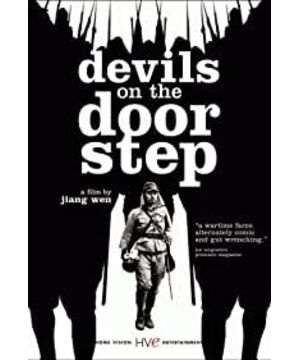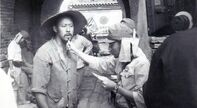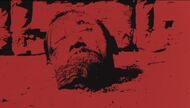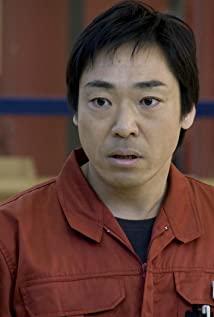1. The ignorance of farmers is really incurable. The small peasant consciousness that I talked about on weekdays, I seldom look into what it actually is, I only know that it comes from peasants. Each class has its unique psychology and habits, which are shared by specific classes, and gradually inherited, stabilized, and will not dissipate in one or two or more generations. What counts as ignorance, the farmers in the film actually teased for the C-Party and Little Japan and became victims. Their weakness and fear of death prevented them from offending any party. Please note that among them, there is not much difference between the C-party and the Japanese. They are both lethal forces. The result was the burden left by the C party (please note, why did the C party throw the burden on the peasants and not solve it on its own? In the great history of our country’s revolution and construction, did the peasants really play such a hapless role? ?), become a Japanese ghost under the sword. To say that they are unlucky is not enough to be distressing, but in fact it is ignorance, only asking for hot kangtou and hot steamed buns. When they think that the transaction is successful and they are in full swing, the hidden tragedy is about to come. They don't understand the cruelty of the Japanese, and they don't have weapons in their hands. This is Marx's point of view. Another point of view is that the food is the mother, which is cruel to say, but this is how it appears in the movie. The peasants don't care what the devil came to the village today, as long as they are allowed to live and give him food, the devil is his mother and father. They do not have the freedom and democratic ideas of Westerners (although they have freedom). Their supreme principle is survival. This kind of survival has nothing to do with the spirit of independence, but only a shallow demand. Everything that stems only from needs, presumably can only rely on those who give satisfaction, and there will never be a day of independence. In fact, the C-Party couldn't be more clear about this, and it also took advantage of the weakness of the peasants to help them "independence."
2. The Japanese are humans. Although their militarism thought has been around for centuries, they blindly denounced their inhumanity and violated the morals of humanity. There is no denying that the militarist spirit is stubborn and abnormal, but after spending a period of time “living” with the villagers, Hua Nihongo changed the way he was captured when he was captured. It seems that the spirit of Bushido still gave way to people’s first priority in survival. Demand, and grateful for the warm hospitality of the farmers, he proposed to trade in food for people. Although Hua Nippon returned to the team and was overwhelmed by the Bushido spirit and brutally slaughtered the villagers who had fed him for three years, my understanding is that people are not only humble, but also changeable. Human is the most plastic animal. Unlike other species, the subtlety of human spirit is far less than the closest apes. We often say that a person has undergone tremendous changes inside, and we are talking about a change in his spirit and the behavior guided by the spirit. Although the spirit has certain constancy, its changes are not controlled by anything at all. Therefore, the changes of people are always uncontrollable. Therefore, any doctrine that invades the human brain is likely to change, because people are fickle, and only change itself remains unchanged.
3. The C party is guerrilla and cunning, and the Kuomintang is a flashy substitute for others, using Japanese knives. . .
At the beginning of the film, a masked gunman breaks into the home of Ma Dasan who is having a affair with a widow, a certain amount of baggage. This burden made Ma Dasan unable to eat or sleep, and it also killed the entire village. We are not going to talk about why the dedication is spent at every turn. We should not destroy our history or rebuild, because we have developed enough and we surrender. In this way, the villagers are not stupid. But how should we deal with the two big living people? While waiting for the C-Party to mention people hopeless, they decided to bury the two alive. This may be the best way, but the villagers are kind-hearted and can't do it. They can only be enshrined as gods, serving good food and drinking, and finally ending in tragedy. But Jiang Wen (Ma Dasan) had a smile on his face when his head fell. What is he laughing at? I guessed it subjectively, and what I laughed at was the cunning and insidiousness of the C-party. The Kuomintang used the Potsdam Announcement to sentence Ma Dasan to death, saying it was high-sounding, walking a pro-American road, and killing Ma Dasan with a Japanese knife (and the farmers outside the execution site were all spectators under Lu Xun's writing). The C-Party finally achieved positive results. It was the peasants who sacrificed and the Kuomintang lost.
In the words of Picasso, there are no insightful people if there is no country that kills the individual. This sentence itself may be considered. But when it comes to film censorship, it can be said that there is no insightful work in a country that does not stifle the film. Looking forward to Jiang's next movie, you don't have to ask for speed, work slowly and do meticulous work. It retains its original unique perspective, but it cannot be "hate". I believe that more peace can make it better than "The Sun Also Rises".
Old post, written on 09-03-05
View more about Devils on the Doorstep reviews










